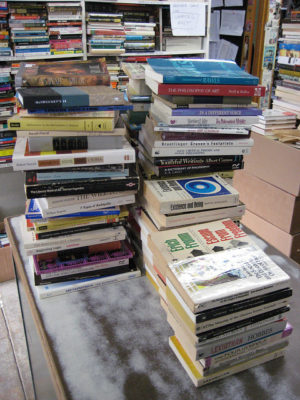
In 1988, I took my first, full-blown creative writing class at Valencia Community College in Orlando, Florida. Our teacher rushed into the room with a huge smile, muttered a brief hello, and launched into the session. “Let’s start with the basics. First, what is the writer’s sacred duty?” he asked, peering at students in the front. Bushy eyebrows bouncing up and down, he gripped the small brown podium. I panicked. I’d recently returned to college after more than a decade, unsure of myself being anything with a definite name, much less the title of writer. Writers having a sacred duty was news to me!
“Write every day,” somebody said.
“Nope,” said our teacher. He craned his neck, sizing us up, inspecting our body languages. “Next?”
“Submit our stories for publication … and don’t give up,” said the guy in front of me.
“That’s great, but … anyone else?” Our teacher’s shoulders slumped. Sighing, he pointed to a woman in the back row.
“Be part of a writer’s group,” she said. As several of us turned around to look at her, her face turned as pink as the sweater she wore. “You know … to get feedback and improve?”
“That’s a good idea, but not a writer’s non-negotiable, unavoidable responsibility. Hint: it is right under our noses.” Leaning over the podium, he declared, “Read!”
A collective moan rolled through the room. Thanks to our teacher’s engaging approach, our embarrassment at overlooking the obvious melted away. Of course, we had to read. We wanted to read. We loved to read. At least I did. But I had not yet realized the essential building block that reading is to the ability to write something worthwhile.
“You all knew that, right?” he said, laughing and flashing that big grin. “First and foremost, we are readers of literature,” he added, emphasizing readers. “Reading is the writer’s sacred duty. Right now, I’m not talking about reading books about how to write, although they help. I mean reading stories, novels, and poems written by experienced, accomplished authors who know what they’re doing on the page. Reading them, reading a variety of voices, helps us absorb cadence, pace, the ins and outs of sentences, the music of it all.”
He went on to talk about the music in great Russian novels, as well as in the writing of Henry James, William Faulkner, Margaret Atwood, Alice Munro—masters every single one.
Dillard on reading and writing
In her compelling book, The Writing Life, Annie Dillard points out, “The writer studies literature, not the world. He lives in the world; he cannot miss it. If he has ever bought a hamburger, or taken a commercial airplane flight, he spares his readers a report of his experience [unless he is a travel writer]. He is careful of what he reads, for that is what he will write. He is careful of what he learns, because that is what he will know.”
What’s on your sacred-duty list?
Dillard cautions us to be careful of what we read and learn. We should ask ourselves about the quality of the books we read. If we always eat junk food, we pay a high health price. Same goes for reading and writing. One way I found to add vitamins to my sacred-duty diet is to meet regularly with some friends in a book club. We read a range of good writing: novels, memoirs and other non-fiction books, even meaty magazine articles. I try to notice how authors structure their stories, write dialogue, produce a flowing rhythm of sentences. I sit back and sink into the writing of prose, like this mesmerizing piece from Margaret Atwood’s The Handmaid’s Tale: “There was old sex in the room and loneliness, and expectation, of something without a shape or name. I remember that yearning, for something that was always about to happen and was never the same as the hands that were on us there and then, in the small of the back, or out back, in the parking lot, or in the television room with the sound turned down and only the pictures flickering over lifting flesh.”
What’s next on your sacred-duty list?

Anna
Great post. I edit a lot, and I can tell right away which authors read and which don’t. It’s painfully obvious. Keeps me in business though!